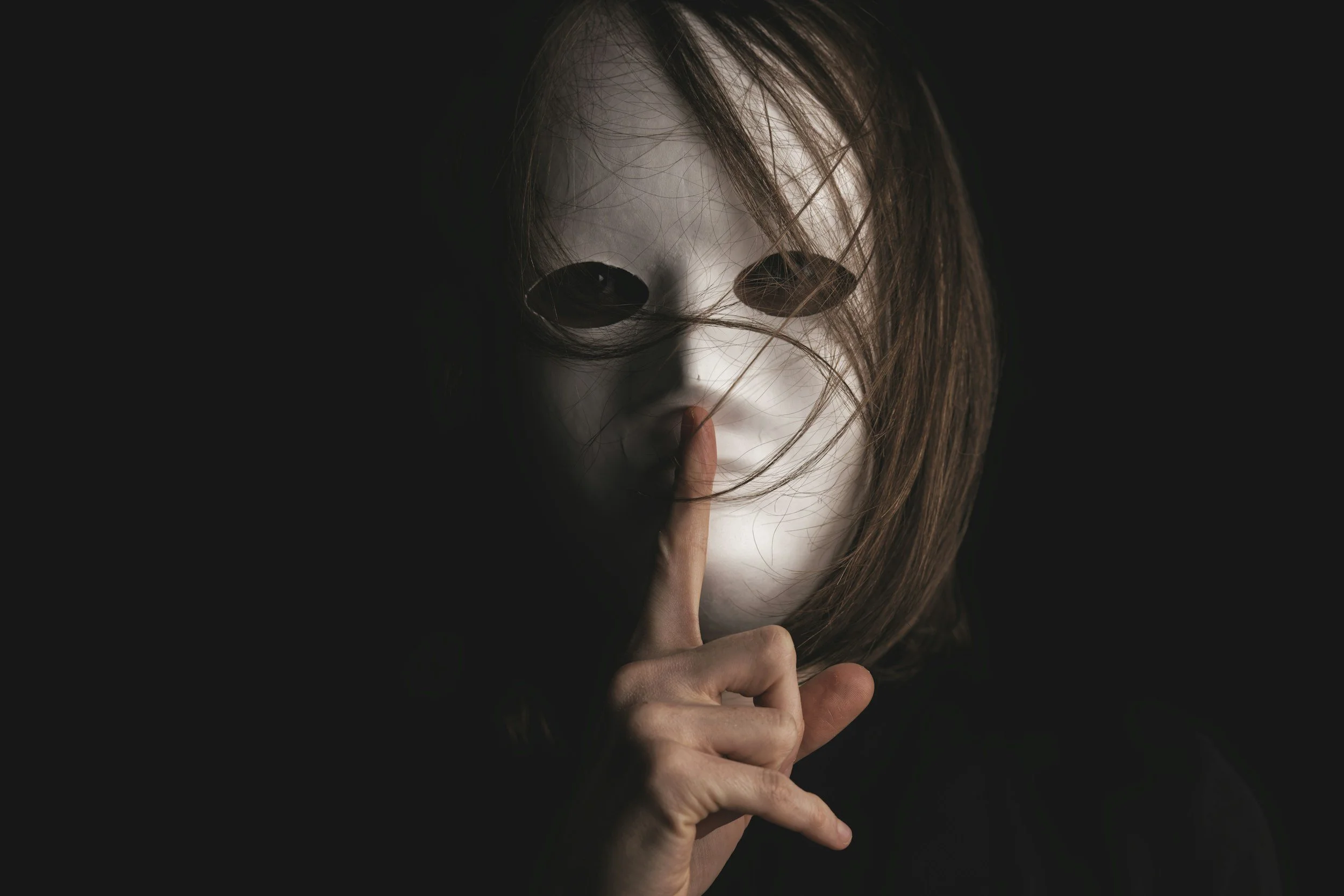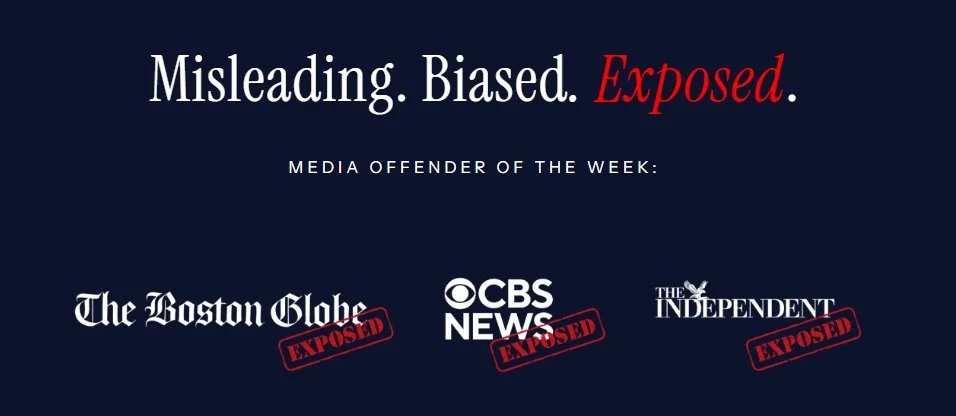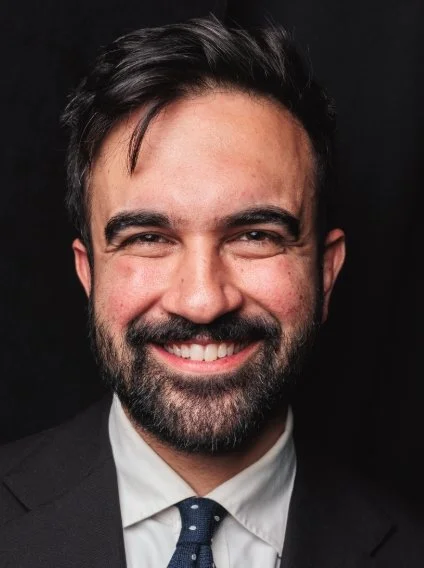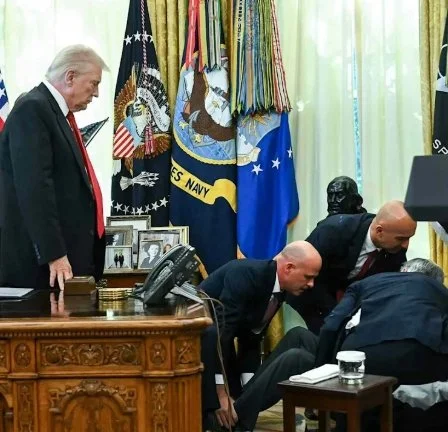Why Authoritarian Leaders Fear Comedians: Trump, Jimmy Kimmel, and the Politics of Ridicule
Authoritarian leaders thrive on the illusion of strength. Their rule depends on projecting fear, commanding respect, and convincing the public that opposition is futile. Laughter corrodes these illusions. To be mocked is to be humanized, and to be humanized is to be diminished. This is why comedy, often dismissed as frivolous, is one of the most subversive forces in politics.
Donald Trump’s long-running hostility to comedians shows this dynamic clear as day. More than most American presidents, Trump continues to define his political identity as a cultural brand. He measured status not only in polls and votes, but in television ratings, headlines, and the ability to dominate the media cycle. Comedians threatened this strategy because they could seize control of his image and recast him not as a dominant figure, but as a national punchline.
That struggle reached a breaking point in September 2025, when Jimmy Kimmel Live! was suspended after Kimmel criticized the MAGA movement’s response to political violence. ABC pulled the program. Major affiliate groups, including Sinclair and Nexstar, refused to broadcast it. Trump celebrated the suspension as a personal triumph. The episode revealed more about the psychology of power than about programming. It showed how deeply authoritarian-leaning leaders fear ridicule, and how comedy undermines the emotional foundations of their authority.
The Psychology of Humiliation
Humiliation has always been the authoritarian’s deepest fear. Political psychologists from Theodor Adorno’s studies of authoritarian personality to contemporary work on strongman politics describe leaders who project total confidence while hiding fragile selves that depend on constant validation. The more a leader insists on dignity and obedience, the more intolerable mockery becomes.
History is full of moments when humor pierced that façade. Charlie Chaplin’s 1940 film The Great Dictator mocked Adolf Hitler not with denunciations but with slapstick. Chaplin turned the Führer into a preening buffoon, dancing with a globe as if it were a toy. The humor did not just ridicule the man; it ridiculed the entire illusion of grandeur that Nazism depended on. For Hitler, such mockery was intolerable. For audiences, it was liberating.
Trump fits this same pattern. He brands himself as a “winner,” boasting about ratings, loyalty, and business success. But these projections are brittle. A joke about his hair or his inability to pronounce “Yosemite” punctures the image he works so hard to sustain. Late-night hosts like Jimmy Kimmel exploit this fragility by zeroing in on the contradictions between Trump’s self-image and his public blunders. John Oliver goes further, using extended comedic investigations to dismantle Trump’s lies piece by piece while keeping the audience laughing. Each laugh represents not just entertainment but a micro-act of humiliation — and in the authoritarian psyche, humiliation is existential.
Narcissism and the Authoritarian Psyche
Psychologists describe narcissism as a fragile ego that requires external affirmation to remain intact. Heinz Kohut argued that narcissistic personalities need constant “mirroring” from others to stabilize their sense of self. When praise and reverence flow, they appear supremely confident. When mockery replaces adulation, the façade collapses into grievance and rage.
Comedy is uniquely suited to delivering this blow. A joke reflects back not the leader’s desired image but his absurdity. For Trump, comedians hold up that distorting mirror relentlessly. Alec Baldwin’s Saturday Night Live caricature exaggerated his voice and mannerisms, turning him into a parody of himself. Trump’s furious tweets about Baldwin only amplified the performance, proving how easily the satire got under his skin. Stephen Colbert framed Trump’s speeches as late-night fodder, pointing out their contradictions with a wry smile that spread across social media. John Oliver went even further, producing viral segments that transformed Trump’s campaign promises and scandals into shared punchlines.
These are not minor annoyances to a narcissistic authoritarian. They are direct assaults on the “grandiose self.” The audience does not just hear criticism; it laughs together. And laughter is contagious. What begins as a skit or a monologue becomes a viral meme, a shared moment, a collective reminder that the strongman is ridiculous. For Trump, each punchline is a narcissistic injury that demands retaliation.
Comedy as a Democratic Counterforce
Comedy destabilizes authoritarian rule because it attacks its emotional infrastructure. Fear is central to authoritarianism. Citizens are meant to fear punishment, chaos, or social loss if they defy the leader. But when citizens laugh together at the leader, fear dissolves into amusement. The leader who once inspired dread now inspires mockery.
Reverence is another crucial element. Authoritarians stage parades, cultivate titles, and flood media with propaganda to maintain a sense of elevated distance from ordinary people. Comedy wipes this away in an instant. A single joke can shrink the larger-than-life figure down to human scale. Chaplin did this to Hitler. Soviet citizens did it to their rulers with whispered jokes about breadlines and secret police. In apartheid South Africa, comics like Pieter-Dirk Uys mocked the absurdities of censorship and racial authoritarianism, making audiences laugh in defiance of state power.
In the digital age, comedy spreads even faster. Authoritarians rely on tightly managed narratives, but humor mutates and multiplies online. John Oliver’s segments on Trump often generated more views on YouTube than many news clips, showing how comedy can outpace propaganda in the attention economy. A meme mocking Trump’s spray tan or hand size can travel across the internet in hours, reaching millions who might never tune in to a political debate.
This is why leaders like Trump, Xi Jinping, Putin, and Erdoğan fear comedy more than criticism. Criticism can be contained or reframed. Humor slips through, replicates, and refuses to be serious. And seriousness is the oxygen that authoritarianism requires. Comedy starves it.
Jimmy Kimmel and the Battle Over Image
Jimmy Kimmel’s long skirmish with Trump shows how mainstream comedy becomes cultural resistance once it punctures a leader’s aura. Kimmel is not primarily a political satirist. He is a mass-audience host whose monologues land in living rooms and group chats that do not seek out political commentary. That reach matters because Trump has always treated media attention as a scoreboard. When a Kimmel bit loops endlessly online, it does not simply disagree with Trump. It turns him into a running joke in the medium he watches most closely. The humour fixates on status anxieties, ratings, crowd sizes, and personal vanity, all of which Trump treats as measures of worth.
The September 2025 suspension made the dynamic visible. After a September 15 monologue about MAGA reactions to political violence, two of the largest station groups announced that their ABC affiliates would pre-empt Kimmel. ABC then suspended production. The blackout moved along two tracks at once. Local affiliates refused carriage, and the network pulled the show. To the public, it looked like spontaneous market discipline. The timing, which followed political warnings and regulatory chatter, made it look like something else. The impression was not a neutral programming call. It was an act of soft coercion.
Inside the studio, the stop was abrupt. Kimmel later said the call arrived less than an hour before taping, with guests already seated and the audience in place. Entertainment outlets corroborated the last-minute nature of the decision. This is how shadow pressure works. A formal order is unnecessary when one executive can cancel a monologue out of fear of consequences.
ABC reversed course on September 22 and returned the show on September 23 after a weekend of negotiations and public blowback. Several affiliates did not immediately follow. For days they replaced Kimmel with local news or syndicated fare. That staggered return revealed how pressure can be applied in a decentralized system. A leader does not need to censor a network directly when allied station owners can starve a show of distribution. It also showed how quickly backlash can force a climbdown once a move is seen as censorship.
The regulatory theatre lingered. Officials insisted there had been no threat. Critics pointed to the chilling effect created by public demands for punishment. The legalities will be debated. The psychology is clear. Powerful figures wanted the joke to stop. Broadcasters feared the cost of letting it continue. The combination created a climate in which a single monologue became a test of loyalty. In such a climate, silencing the comic serves the same purpose as rewriting a headline. It erases the humiliation.
Kimmel’s return produced the opposite effect. He opened with a pointed monologue, denied any intention to minimize violence, and framed the suspension as an attack on expression. Ratings rose. Clips spread quickly online. Trump first celebrated the suspension, then vowed to test the network after reinstatement. Kimmel replied that only Trump would try to prove he was not threatening a broadcaster by threatening a broadcaster. The exchange functioned as a live demonstration of narcissistic injury. The policy stakes were minor. The self-image stakes were enormous. The attempt to suppress the comic amplified the joke.
The Global Pattern of Fragility
Trump’s fight with Kimmel is part of a global pattern. Authoritarian leaders move early against humor because humor kills mystique. In China, censors scrubbed images that compared Xi Jinping to Winnie the Pooh. The issue was not subversive content. It was the transformation of a solemn leader into a cute bear. Cuteness dissolves severity. Regulators have also policed puns and homophones that citizens use to slip past filters. These campaigns are presented as cultural housekeeping. They function as controls on the creativity that turns rulers into running gags.
In Russia, the space for political comedy has narrowed since the full-scale invasion of Ukraine. Comics have faced charges under speech and extremism statutes. Venues face pressure. Audiences fear that laughter at the wrong line could be read as disloyalty. The aim is not only to jail performers. It is to shut down the collective rehearsal of dissent that live comedy enables. A room that laughs together can stand together.
Turkey offers a legal template for criminalizing ridicule. Article 299 of the Penal Code makes insulting the president a crime. Courts have enforced it against students, cartoonists, and opposition politicians. Human rights groups and European courts have condemned the law. It continues to convert personal offense into state power. That conversion is authoritarian fragility dressed as legality.
Across these cases, the same fear is at work. Authoritarian legitimacy depends on ritual and distance. Comedy destroys distance. It invites the public to treat the leader as a character with tics and tells, not as a myth. Once the leader becomes a character, the plot can change. That is what censors try to strangle.
Collective Psychology, Why Laughter Spreads
Laughter is social before it is personal. People rarely laugh alone. They laugh to show recognition and to join a group. In politics, that recognition becomes a low-risk rehearsal for solidarity. Sharing a clip is not a march. It is a public whisper that says I see what you see. In a networked culture, that whisper scales quickly. Humor is modular. One line spawns a thousand riffs. One image becomes a template that anyone can edit. Jokes travel sideways through friends and feeds, not downward from a podium. That is why humour outruns propaganda.
The Kimmel episode shows this logic inside a media system that leaders cannot fully command. ABC tried to remove the stimulus, and affiliates tried to cordon it off. Viewers followed the laughter anyway. When the show returned, the spike in viewership and the rapid spread of the opening monologue were not random. They were social proof that a community refused the politics of solemnity and fear. Even Trump’s public gloating hardened the punchline. The more he tried to bulldoze the satire, the smaller the persona appeared.
The psychology is straightforward. Authoritarian power depends on fear, respect, and narrative control. Humor erodes fear by making audiences feel safe together. It erodes respect by replacing reverence with ridicule. It erodes control because jokes move peer to peer. Leaders who answer with censorship or regulatory saber rattling diagnose themselves. They show that they are not secure enough to survive a punchline.
Simply Put
The 2025 suspension of Jimmy Kimmel Live! is a real-time case study in the politics of humiliation. Trump’s drive to punish comedians is not about program standards or policy disagreement. It is about repairing a wounded self that cannot coexist with mockery. Affiliates and executives acted as intermediaries, translating a leader’s anger into carriage decisions until backlash forced a reversal. The cycle repeats across borders with different names and different laws. The psychology does not change.
For progressives and defenders of democracy, the lesson is practical. Comedy is not a side show. It is a cultural counterforce that undermines the emotions on which authoritarianism rests. When a society protects comedians, it protects its capacity to feel unafraid together. When a leader lashes out at jokes, he exposes the weakest point in his armour. The antidote is not silence. The antidote is more laughter, shared widely, until the mystique of inevitability gives way to the ordinariness of a person who can be teased.








